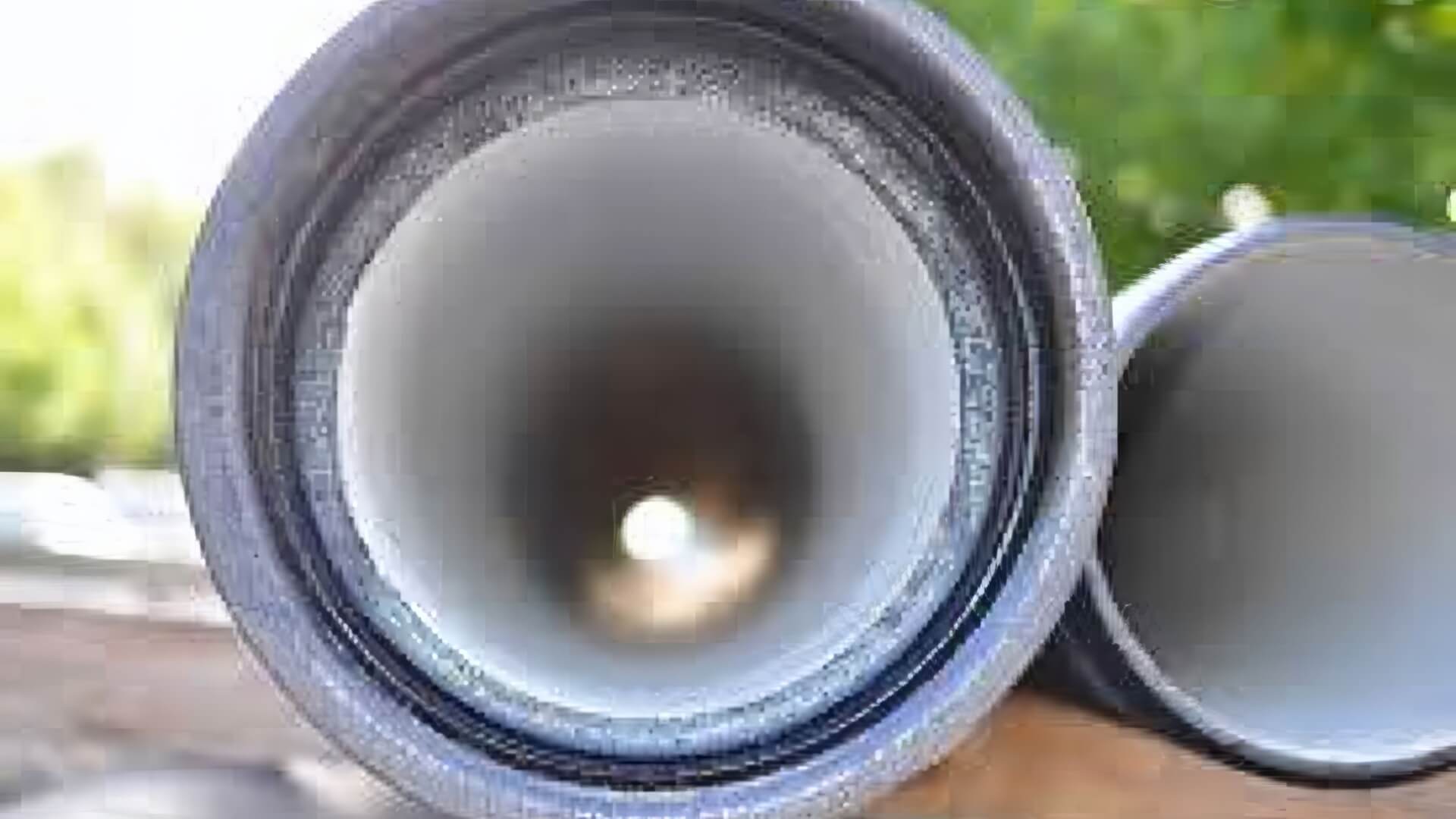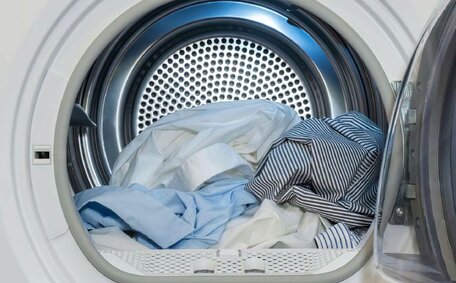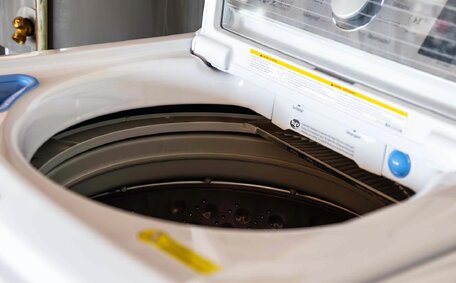Introduction to Gas Hot Water Systems
Gas hot water systems are a popular choice for heating water in many Australian homes, including here in Oatlands, Sydney. They work by using natural gas to heat water, ensuring the water heated is ready when you need it, stored in a tank or generated on demand in continuous flow systems.
When evaluating the cost-effectiveness of a hot water system, factors like upfront costs, energy efficiency, running costs, and maintenance requirements need to be weighed against gas electric hot water usage and household needs. Between gas vs electric hot water and solar systems on these metrics, gas often compares favourably.
As a leading Oatlands plumbing company, we often recommend gas hot water system1 to local homeowners looking for a reliable and efficient water heating solution suited to their budget.
Comparing Storage Tank vs. Continuous Flow Gas Systems
When comes to evaluating gas hot water systems, homeowners have two main options - storage tank systems and continuous flow systems. Here’s how they compare:
Storage Tank Gas Systems
Storage tank gas systems work by heating water stored in an insulated tank. They come in a range of tank sizes to suit different household needs - generally 120-400 litres. Benefits of storage tank systems include:
- Lower upfront costs compared to continuous flow
- Can cope better with high demand periods e.g. multiple showers
- Hot water is ready for use only when you require it
Downsides include potentially higher standby heat losses and slower hot water delivery to taps situated further from the unit.
Continuous Flow Gas Systems
Continuous flow systems instantly heat water as they achieve the flow hot water need as it passes through a heating unit, so there is no tank. Benefits include:
- Compact size and faster delivery of hot water
- Lower standby energy losses as electric water isn’t stored
- Endless hot water subject to flow rate limits
Downsides are higher upfront costs and possible temperature fluctuations at higher flow rates for those seeking instant hot water.
When evaluating the best types hot water systems for your home, factors like hot water use, available space, and number of bathrooms should be considered to determine the most suitable and cost-effective option.
Sizing Your Gas Hot Water System Based on Household Usage
Choosing the right size gas electric hot system your household’s needs require is key to ensuring cost-effectiveness. An undersized unit can struggle to meet demand, forcing you to conserve hot water usage more than you can get by with comfortably. But an oversized system results in higher purchase and running costs than necessary for your hot water usage.
As a general rule of thumb, here is how to size your gas hot water system based on home occupancy:
- 1-2 people - 125 litre storage tank or 16-20 litre/minute continuous flow
- 3-4 people - 160-250 litre storage tank or 20-26 litre/minute continuous flow
- 5+ people - 300+ litre storage tank or 26+ litre/minute continuous flow
However household size isn’t the only consideration when selecting the right water tank capacity. Daily hot water usage habits play a major role. For example, a household of four with just one shower may suffice with a 160 litre storage hot water tank, while a two-person household with long showers may be better off with a larger 250 litre system.
You can estimate how much hot water you use on average each day by reviewing your water bill, if available. As a guide, the typical Australian household uses between 35-45 litres per day of hot water per person, contributing to your energy bill significantly. This accounts for nearly a quarter of household energy bills on average.
We recommend consulting with our Oatlands plumbing experts to ensure your hot water system can be correctly sized, factoring in litres per household member. Our team can assess your specific requirements for the hot water system your home size, occupancy, usage patterns, and budget demands to provide tailored advice. Correct sizing means greater convenience, efficiency and long term cost savings.
Gas vs. Electric vs. Solar: A Cost and Efficiency Comparison
When comparing the cost-effectiveness and efficiency of different hot water systems, gas vs electric hot systems often comes out on top over solar hot water system options in Australian homes.
Gas water heaters can generally have lower operating costs than electric, saving money on your energy rates per unit for natural gas. Energy efficiency can also favour gas units like storage tanks or instant systems with advanced heat exchangers and insulation.
A solar water heating system can seem attractive but much depends on location. In cooler climates, solar efficiency drops in winter without supplemental solar gas or electric to boost heating. And the high upfront costs of various types hot water heaters, including solar or heat pump systems, often undermine cost savings relative to straightforward gas systems.
Ultimately gas hot water’s advantages in cost, convenience and performance make it the preferred choice over electric or solar for many homeowners in temperate Australia. An appropriately sized gas system coupled with good usage habits yields an optimal balance of affordability and ample hot water supply.
Installation and Equipment Cost Breakdown of Gas Systems
Installing a gas hot water system, along with its associated storage systems, comes with various equipment and labour costs to factor into your budget:
- Gas hot water unit - Prices range from $800-$1500 for electric storage tank systems and $1600-$3500 for gas instant continuous flow units depending on size, efficiency and features.
- Flue kit - Required for gas exhaust and ventilation. Expect to pay $150-$350.
- Plumbing parts - Gas pipework, valves, connections etc. Approx. $300-$800.
- Labour - Our qualified plumbing installation service starts from $980 for basic storage tank systems, ensuring they supply hot water efficiently and consistently.
All up, total installed costs typically range from around $1500-$2500 for a standard gas storage tank system. More advanced instant systems fall in the $3000 to $5000 range once all equipment, labour and connections are included.
While gas hot water system prices carry higher initial purchase and install costs than electric hot water system alternatives, reduced lifetime running costs offset these over time in most homes.
Analyzing the Running Costs and Energy Efficiency of Gas
When analysing the cost-effectiveness of gas hot water systems, running costs and energy efficiency are two key factors.
Running Costs
The main running costs for gas hot water systems are:
- Energy usage - The amount of gas required to heat water based on hot water demand and the efficiency rating of the system.
- Gas tariffs - The unit price paid for natural gas, which can vary across providers and states in Australia. Standard residential tariffs range from 1.5 to 3.5 cents per MJ.
- Maintenance - Gas heaters can have lower maintenance costs than electric or solar, with basic annual servicing recommended.
Typical energy costs for an efficient 5 star gas water heaters range from $250 - $400 per year to supply a standard 4 person household.
Energy Efficiency
Gas hot water systems are more cost-effective to run than electric systems and are available in a range of energy efficiency star ratings from 1 to 6 stars. The higher the rating, the more thermally efficient they are at retaining heat and minimising losses.
Factors that impact efficiency and running costs include:
- Tank insulation thickness - Optimises heat retention.
- Advanced burner and heat exchanger design - Reduces heat loss and improves gas usage efficiency.
- Electronic ignition - Eliminates pilot light standby losses.
- Flueing features - Enhances ventilation performance.
By consulting gas hot water system running costs and energy efficient specifications, households can select optimal systems to minimise expenditure while meeting their hot water needs.
Maintenance Tips for Gas Water Heater Longevity
To maximise the lifespan of your gas hot water system, be sure to follow these maintenance tips from the experts at Oatlands Plumbing:
- Flush your hot water heater annually by draining water from the tank using the relief valve to clear out any hot water sediment build-up. This removes built-up sediment.
- Inspect gas fittings and pipework yearly. Check for leaks, corrosion and blockages. Call us if you find any issues.
- Clean the burner, pilot light and combustion chamber. Dust buildup reduces heating efficiency over time.
- Replace the anode rod every 3-4 years. The anode rod protects the tank from corrosion.
- Check water pressure yearly to ensure it’s between 20 to 80 psi. High or low pressure can damage valves or pipes.
- Keep the relief valve clear. Ensure the drain line is intact so pressure can safely release.
- Maintain venting. Clear debris around the flue outlet which could impede ventilation.
- Service your system annually. Our qualified technicians will undertake a comprehensive tune-up to optimise performance and lifespan.
With proper maintenance as outlined above, you can expect over 10 years of reliable service from quality gas hot water heaters.
Understanding Energy Ratings and Their Impact on Bills
Energy efficiency ratings, shown by the star rating system, provide useful insight into the potential running costs and bills for operating different hot water systems.
More stars means greater energy performance and lower monthly energy usage, enabling you to save money on your energy costs. For example, upgrading from a 3 star to a 5 star gas storage system could reduce gas bills by $100-150 per year, based on average household demands.
The higher initial cost of more efficient units with thicker insulation and advanced burners pays dividends through lower gas usage over time. Over a 10 year period, the savings on bills can outweigh the upfront price premium.
We advise Oatlands households to consult the energy star ratings when choosing gas hot water systems. Prioritising higher rated models where possible helps curbs unnecessary energy wastage and reduce household bills over the longer term.
Availability of Gas Lines vs. LPG and Connection Costs
When installing a gas hot water system in your home, a key decision is whether to connect to the mains gas lines or use bottled LPG (liquefied petroleum gas) instead. This mainly depends on the availability of natural gas infrastructure in your area.
Here in Oatlands and across much of Sydney, homes have access to gas electric hot water through natural gas mains. Connecting directly to the gas lines generally works out cheaper than using LPG bottles or tanks to fuel hot water systems in the long run.
Costs for connecting to mains gas lines for your hot water vs alternative sources include:
- Gas line installation - $500 to $1500 depending on the complexity.
- Plumbing parts like valves and fittings - $200 to $500
- Potential street access fees - $300 to $1000 if road or sidewalk disruption is required.
For households without direct access to reticulated gas, LPG in bottled or bulk tank form may be the only fuel source option. Upfront costs here relate mainly to installing large tanks and regulators to feed hot water units.
Our team of qualified Oatlands plumbers can provide expert advice on evaluating and connecting to available gas lines vs electric hot water systems or LPG based on your homes location. We handle all aspects of installation safely, compliantly and cost-effectively.
Environmental Considerations of Gas Emissions
Using gas hot water systems does result in greenhouse gas emissions from the burning of natural gas. However, Modern gas vs electric water systems can be very efficient, resulting in lower emissions compared to older models.
Here are some environmental considerations when using gas hot water systems:
- Choose a high efficiency system, which means a 5-6 star energy rating. These produce fewer emissions per litre of water heat.
- Correctly size your system to suit household needs. Avoid oversized units that cause excess emissions.
- Have your system serviced regularly by our technicians to optimise efficiency and minimise waste gas usage.
- Consider installing low-flow shower heads and taps. Using less hot water will reduce reliance on your energy source.
- Compare gas hot water heaters versus heat pumps or solar electricity boosted systems. While more expensive upfront, they can produce lower lifetime emissions in some households.
At Oatlands Plumbing, we’re mindful of environmental impacts when installing or replacing your hot water system. We’re happy to advise you on the most efficient and low emissions option for your home’s requirements and budget.
Government Rebates and Incentives for Energy Efficiency
There are several government rebates and incentives available to Australian households installing energy-efficient hot water systems:
- The Victorian Energy Upgrades programme provides discounts on gas hot water systems with a 5-6 star energy rating. Rebates range from $500 to $1000.
- The NSW Climate Change Fund offers up to $500 rebate for solar hot water systems and solar heat pump water systems.
- The Queensland Gas Energy Efficiency Scheme provides incentives up to $1260 for installing specific high efficiency gas hot water models.
- The SA Retailer Energy Efficiency Scheme offers retailers-sponsored rebates on 5-6 star gas and heat pump systems.
To access these rebates, contact our team at Oatlands Plumbing. As accredited suppliers and installers, we handle all the paperwork and applications to secure the maximum rebate available for your new energy-efficient hot water system. Reducing your upfront costs ultimately means the opportunity to save money on your energy bills over the long term.






